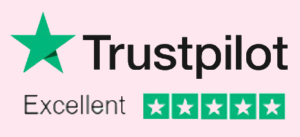
Compare Gap insurance quotes with Monefi.
- Compare Business Insurance quotes from a range of leading UK insurers
- 80% of settled claims paid within 24 hours as of 2022
- In partnership with Simply Business

What is Gap Insurance?
Business insurance safeguards your business against unforeseen financial losses. Our diverse range of products offers protection in several key areas, including:
- Accidents and injuries at the workplace
- Damage to, or loss of, tools and equipment
- Harm or theft of business assets and inventory
- Revenue loss
- Legal costs
Business insurance is essential for risk management and sustaining your business’s growth. With policies tailored to the UK market, Monefi will help you navigate the complexities of business insurance.

What types of GAP insurance can I get?
Return to invoice
Different insurance types come with varied pricing. It’s crucial to weigh your options to find what suits your business best.
Return to value
Your industry or profession has unique risks, impacting the insurance cost. Tailored insurance is key.
Combined return to invoice
Larger businesses with more employees or higher annual turnovers generally face higher insurance costs.
Vehicle replacement
Comprehensive coverage across multiple policies will reflect in your premiums, but it’s worth the investment for the right protection.
Contract hire
A track record of frequent insurance claims or past legal issues can increase your insurance costs.
Finance cover
Opting to pay more towards any claims can lead to lower premiums, offering a potential saving strategy for your business insurance.
Making Informed Decisions:
Understanding these factors will help you make an informed choice about your business insurance.
It’s not just about the cost—it’s about securing your business’s future with the right level of protection.
How does a GAP insurance policy work?
Yes, in the UK, business insurance can be a legal requirement, depending on your circumstances. The most common is employers’ liability insurance. If you employ one or more people, it’s mandatory by law. Other types of insurance, such as professional indemnity insurance, may also be required for specific professions, especially service-based. Some clients may make this insurance a contractual obligation, or your industry regulator might consider it necessary.
GAP Insurance Checklist*
What does GAP Insurance policy cover?
- Standard feature: Provides protection against unexpected damage caused by natural events such as heavy rainfall or river overflow.
- Buildings insurance: Provides cover to structure and permanent fixtures.
- Contents insurance: Covers items inside your home, including clothing, electronics, furniture, and carpets.
- Most standard buildings insurance policies provide coverage for damage caused by subsidence, but this applies only if your property hasn’t experienced such issues before.
- Some policies may also include coverage for losses or damages to belongings due to subsidence and offer temporary accommodation if you need to move out during repairs.
Fire coverage is a standard inclusion in both buildings and contents insurance. If you have both types of coverage, it should safeguard the structure of your home as well as all the contents within it, from furnishings and appliances to jewellery, electronics, clothing, and books.
You almost certainly have coverage for damage resulting from storms under your buildings and contents insurance. This coverage can help mitigate financial losses caused by a storm, such as roof tiles being blown off. However, it typically applies only to your residence and any additional structures like sheds, excluding damage to fences, hedges, and gates.
Most standard buildings insurance policies encompass damage resulting from sudden water leaks or burst pipes, often referred to as “escape of water” coverage. Check with your insurer if your policy covers the repair or replacement of burst pipes, as some policies may only cover the damage caused by the leak. Note that gradual leaks, seen as a maintenance issue, are typically not covered.
What does GAP Insurance not cover?
Your home insurance typically won’t cover the natural ageing or wear and tear of your belongings. So, if your favourite sofa is showing its age or your appliances give out, you’ll need to budget for replacements.
It’s important to notify your insurer if you plan to be away from your home for an extended period, usually beyond 30 days (some policies might allow up to 60 days). An unoccupied home can present higher risks, so you can browse quotes and help tailor your coverage or explore specialised options.
Standard home insurance doesn’t include specific asbestos coverage. However, if asbestos concerns arise after an insurable event like a fire or flood, your buildings insurance may assist with removal costs.
Accidentally spilling coffee on your laptop or causing mishaps to your belongings isn’t typically part of standard contents insurance. To safeguard against such incidents, you can usually add accidental damage coverage to your policy for a small extra cost.
Claims tied to issues stemming from inadequate home maintenance may be denied. For example, if a leak occurs due to neglected roof tile replacement or if dampness arises from poor ventilation, these could be viewed as maintenance-related and might not be covered.
Damage resulting from frost isn’t typically covered by most insurers, as home insurance is designed for unexpected events like storms or floods. Frost is considered a seasonal and expected occurrence.
Standard home insurance covers vandalism by strangers, such as break-ins or graffiti. However, it doesn’t extend to deliberate damage caused by you, your family, or invited guests.
Damage caused by pests like rodents is generally not included in most home insurance policies. However, if you opt for optional home emergency cover, you could receive assistance for pest removal.


How much does GAP insurance cost?

The value of your car

Excess

Type of GAP insurance

Policy length
Is GAP insurance worth it?
Yes, in the UK, business insurance can be a legal requirement, depending on your circumstances. The most common is employers’ liability insurance. If you employ one or more people, it’s mandatory by law. Other types of insurance, such as professional indemnity insurance, may also be required for specific professions, especially service-based. Some clients may make this insurance a contractual obligation, or your industry regulator might consider it necessary.
How can I get cheaper GAP insurance quotes?
- Choose the type of cover carefully
- Compare quotes
- Go for a higher excess
Types of GAP Insurance available?
Return to invoice cover (RTI)
Business insurance can be legally mandated. For example, employers' liability insurance is compulsory for the safety of your employees. Failing to comply with these requirements can lead to hefty fines or even legal action.
Agreed Value Cover (AVC)
Running a business involves various risks, like accidents, unexpected events, etc. Business insurance acts as a safety net, covering the costs associated with these risks and preventing financial loss.
Contract Hire GAP (CHG)
Running a business involves various risks, like accidents, unexpected events, etc. Business insurance acts as a safety net, covering the costs associated with these risks and preventing financial loss.
Finance GAP
Business equipment, inventory, or property, are valuable. Business insurance safeguards and ensures that your hard-earned capital is not lost in unforeseen circumstances.
Negative Equity
In the event of a claim, business insurance helps you maintain operations and recover quickly. It provides financial support to keep your business running smoothly.
Vehicle replacement (VR)
In the event of a claim, business insurance helps you maintain operations and recover quickly. It provides financial support to keep your business running smoothly.
Add-ons and optional extras
Choosing the right business insurance isn’t just about finding the cheapest option; it’s about securing value-driven cover that genuinely protects your business. With our partner Simply Business, we’re here to guide you to insurance that offers substantial protection at a reasonable cost.
Scratch and dent insurance
Tyres and alloy wheels
Latest news:
Employers’ liability cover is a legal requirement for most businesses with staff, public liability insurance is important if you’re in contact with members of the public, and professional indemnity insurance can be useful if your business offers advice.
If you are self-employed and work entirely on your own, you won’t need employers’ liability insurance. However, it is important to remember that you may need other types of insurance cover, such as public liability, product liability or professional indemnity insurance.
You may need business insurance if you work from home, but what kind of insurance you need will be determined by your particular business. If you welcome clients onto your premises, then you should consider public liability insurance, in case a client suffers an injury while visiting you.
Even if your business operates online – it’s just as real as a bricks and mortar establishment. You can protect it against risk, injury and the damage of possible compensation claims. That’s where our insurance providers come in.
You can still get business insurance before you start trading regardless of the business structure you choose. Your insurer won’t need your company registration number, but will need your business name, type and address.




